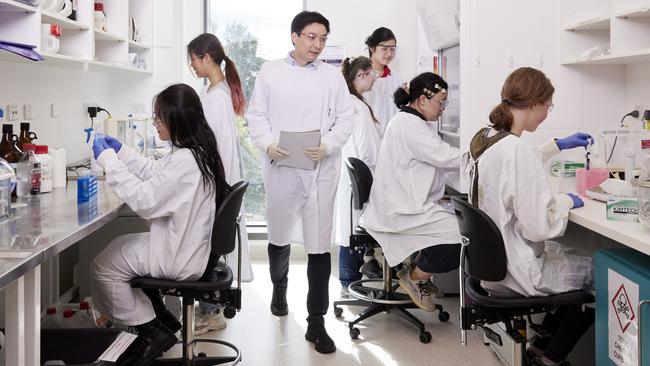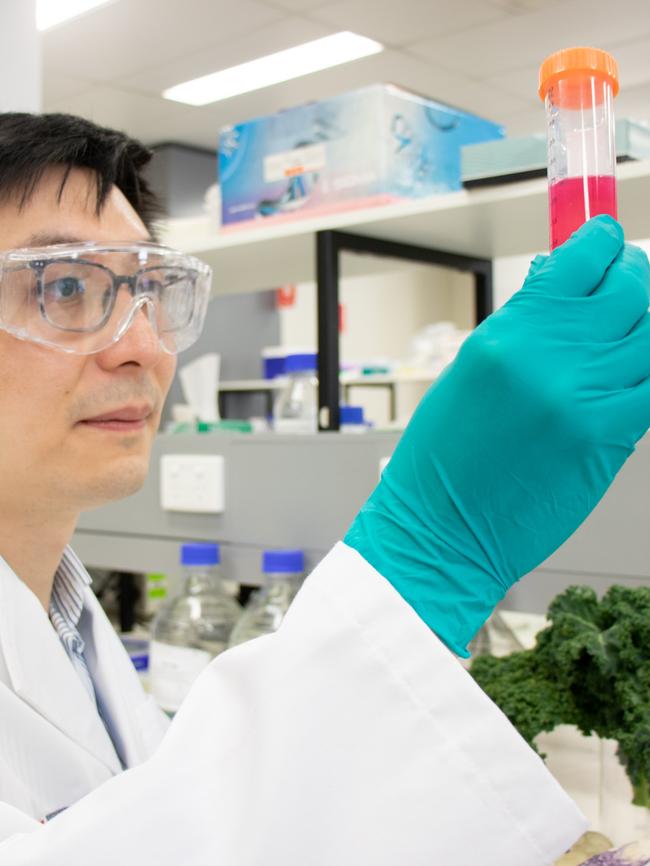Vegies on the menu for stroke treatment
They are among the most maligned foods on the dinner menu, but for physicians the health-giving properties of brussels sprouts, cauliflower and cabbage are beyond refute.

They are among the most maligned foods on the dinner menu, but for physicians the health-giving properties of brussels sprouts, cauliflower and cabbage are beyond doubt, with new research suggesting they could even help dissolve blood clots and treat stroke patients.
A new study conducted by the Heart Research Institute into the benefits of cruciferous vegetables, including broccoli, cauliflower, brussels sprouts and cabbage, has found their natural chemicals can reduce the chance of blood clotting and even improve the performance of “clot-busting drugs”.
While the health benefits of cruciferous vegies are well known, the Sydney-based research group said preclinical trials using animal models showed their use in combating strokes could be expanded by pinpointing the chemical molecules that mitigate the risk of stroke.
Sydney University’s Xuyu Liu, who led the research project and specialises in small molecule drug development, said an increased diet of brussels sprouts and broccoli showed they can double the rate of unblocking arteries and potentially help people avoid strokes. “We know eating plenty of fresh fruits and vegetables and foods low in saturated fats can help prevent heart disease and stroke, but some of these same vegetables may also be able to treat and reverse stroke,” he said.
“The research really marks the first time we’re examining how we fuel the blood circulatory system with these foods … and the long-term aim is to develop new treatments that can target blood clotting on a molecular level.

Stroke occurs when the blood supply to the brain is cut off, starving cells of oxygen and nutrients, eventually causing areas of the brain to die. The most common cause is known as ischaemic stroke, a form of clotting that obstructs the body’s blood flow.
According to the Heart Research Institute, up to 55,000 Australians suffer a stroke each year, costing about $7.7bn every year in healthcare resources.
Dr Liu said many of them could be avoided. “At the moment, the treatments have not really advanced since the 1990s. We only administer the Tissue Plasminogen Activator drug for strokes, but they are limiting and cannot unblock the blood supply, meaning only about 20 per cent of stroke sufferers respond to the treatment,” he said.
Dr Liu said his research group’s preclinical trial had successfully isolated a natural chemical in broccoli, known as isothiocyanates, that can double the rate of unblocking arteries when compared to the TPA drug.
The next step is to test his findings in a human clinical trial and produce a drink that combines the best molecules for anti-thrombotic treatment.




To join the conversation, please log in. Don't have an account? Register
Join the conversation, you are commenting as Logout